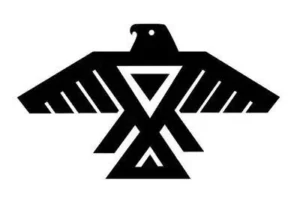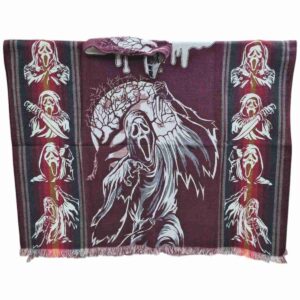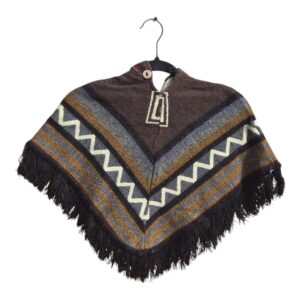Introduction to the Minnesota Chippewa Tribe – Leech Lake Band
The Minnesota Chippewa Tribe, one of the largest Native American tribes in the state, is comprised of six bands, with the Leech Lake Band being particularly notable for its rich cultural heritage and vibrant community. Located in north-central Minnesota, the Leech Lake Band of Ojibwe people has a storied history that dates back centuries. Nestled around the picturesque Leech Lake, the tribe’s reservation spans nearly 1,600 square miles, making it a crucial region for both the tribe’s cultural practices and economic initiatives.
With a population of around 10,000 members, the Leech Lake Band exemplifies resilience and tradition, balancing modern life with ancestral practices. Their governance is rooted in democratic principles and focuses on sustainable development while honoring their heritage. The community is deeply connected to the land, which provides not only for their sustenance but also for cultural events, arts, and conventional gatherings.
As active stewards of their environment, the Leech Lake Band places a high priority on natural resource management. Through various initiatives, they promote the preservation of their lands, waters, and wildlife, reflecting a commitment to future generations. This harmonious relationship with nature is echoed in their ceremonies and daily lives, reminding us of the critical obligation many Indigenous peoples hold in environmental conservation.Moreover, the Leech Lake Band has made meaningful strides in economic development, leveraging their natural resources through ventures such as gaming, tourism, and sustainable forestry. Their innovations not only contribute to the community’s economy but also aim to empower tribal members and uphold cultural values.
In essence, the Minnesota Chippewa Tribe – Leech Lake Band is a thriving example of tradition meeting modernity, showcasing the importance of cultural preservation, community resilience, and environmental stewardship.Whether through arts, language revitalization, or economic initiatives, the Leech Lake Band continues to serve as a beacon of hope and strength, ensuring that future generations will inherit a rich legacy.
Origin Of The People
The Minnesota Chippewa Tribe, particularly the Leech Lake Band, has a rich and complex history that traces back thousands of years. The Leech Lake Band is one of the six bands under the Minnesota Chippewa Tribe, which is part of the larger Anishinaabe community that includes the Ojibwe, Odawa, and Potawatomi tribes.
Traditionally, the Anishinaabe people migrated from the Atlantic coast to the Great Lakes region, following the guidance of prophecies that described the journey toward the “place where food grows on water,” referring to wild rice.This migration, involving a rich tapestry of culture and spirituality, ultimately led them to the area surrounding Leech Lake in north-central Minnesota.
The Leech Lake Band established deep roots in this territory, relying on the abundant natural resources in the region, including fish, game, and wild rice. The name “Leech Lake” itself originates from the presence of leeches, which were once plentiful in the lake waters, signifying the ecological richness that sustained the tribe for generations.
Historically, the Leech Lake Band engaged in trade with neighboring tribes and European settlers, capitalizing on the area’s rich resources. They adapted to changes brought by European influence while working to preserve their traditions, language, and way of life. Significant events, such as the Indian Removal Act of the 1830s and subsequent treaties with the United States government, shaped their contemporary experience, resulting in land loss and diminished autonomy.
Today, the Leech Lake Band retains a vibrant cultural identity, celebrating their heritage through language revitalization efforts, traditional crafts, and cultural gatherings. Their connection to the land remains strong, and modern initiatives focus on sustainability and environmental stewardship, reflecting the tribe’s commitment to both its ancestral history and future generations. Through storytelling and tradition,the people of the Leech Lake Band continue to honor their origins,ensuring that their unique identity endures in the face of ongoing challenges.
Tribal Homelands
The Leech Lake Band of Ojibwe, part of the Minnesota Chippewa Tribe, has its tribal homelands situated in the breathtaking region of north-central Minnesota. This area encompasses nearly 1,000 square miles, rich in natural resources and bordered by scenic lakes, forests, and wetlands. The most prominent of these lakes is Leech Lake, which is the third-largest lake in Minnesota and a vital resource for the tribe’s cultural, spiritual, and economic activities.
Historically,the Leech Lake Band has occupied this land for generations,with a deep connection to the environment that has shaped their identity and way of life. The tribe’s territory is located within the Chippewa National Forest, a vital region that supports a variety of ecosystems and wildlife. The forest and its resources play a crucial role in the tribe’s traditions, providing food, medicine, and materials for crafts and ceremonies.
The Leech Lake Band takes great pride in preserving their tribal homelands, focusing on sustainable practices that honor their ancestors while adapting to modern challenges. The tribe engages in wildlife management, environmental stewardship, and habitat restoration to protect their natural resources. Fishing, wild rice harvesting, and hunting continue to be significant cultural practices that foster a strong connection to the land.
Culturally, the Leech Lake reservation is a center for Ojibwe traditions, languages, and ceremonies. The tribe actively promotes cultural revitalization through education and community events, ensuring that their heritage is passed down to future generations. Visitors to the Leech Lake area often have the opportunity to experience this rich culture through festivals, art exhibits, and local history programs.
Economic development initiatives within the tribal homelands include job creation and business ventures that enhance the quality of life for the tribe’s members while respecting the land and its resources. The Leech Lake Band of Ojibwe operates several enterprises, including gaming facilities, which provide essential revenue for community programs, housing, and education.
the tribal homelands of the Leech Lake Band reflect a vibrant tapestry of cultural heritage and natural beauty, where the past, present, and future intertwine harmoniously. This connection to the land is a testament to the resilience and resourcefulness of the Leech Lake Band, ensuring their identity and traditions thrive for generations to come.
Interactions With Settlers
The Minnesota Chippewa Tribe, particularly the Leech Lake Band, has a rich history of interactions with settlers, characterized by both positive collaborations and negative conflicts.
On the positive side, the Leech Lake Band’s interactions with settlers led to exchanges of cultural knowledge and resources. Early settlers benefited from the tribe’s expertise in navigating the vast forests and lakes of northern Minnesota, which played a key role in the development of the region’s economy. The Chippewa people’s deep understanding of the land helped settlers adapt to an environment that was often unfamiliar to them. Moreover, the Leech Lake Band engaged in trade with settlers, exchanging furs and other goods, which contributed to the local economy and fostered relations between the two groups, at least initially.
Though, these interactions were not without their challenges. As settlers sought more land for agriculture and settlements, conflicts arose. The Leech Lake Band faced pressure from an expanding non-Native population, leading to a series of treaties often taken advantage of by the U.S. government. The treaties typically resulted in the cession of vast territories to settlers, which fragmented the band’s traditional lands and disrupted their way of life. The aftermath of the Treaty of 1855, which diminished the land available to the Leech Lake Band, exemplifies the negative impact of settler expansion, leading to displacement and socio-economic challenges for the tribe.
In addition, the Indian Removal Act of 1830 initiated policies that aimed to force Native tribes from their ancestral lands, creating tensions that occasionally flared into violence. For the Leech Lake Band, such governmental pressure led to resistance and uprisings, illustrating the tribe’s struggle to maintain autonomy and protect their cultural identity.
Today, the legacy of these interactions is complex. The Leech Lake Band continues to preserve its cultural heritage while navigating the realities of a modern world shaped by its historical encounters with settlers. Efforts to reclaim rights, accountability, and land are vital aspects of their ongoing journey, reflecting resilience in the face of adversity. Through community initiatives, cultural events, and legal battles, the Leech Lake Band aims to strengthen its sovereignty and promote a better understanding of its history among settler descendants.
Both the positive collaborations and the negative conflicts have left an indelible mark on the Leech Lake Band’s identity, shaping its path to self-determination and cultural revival today.
Most Notable Events In Their Tribal History
The Leech Lake Band of the Minnesota Chippewa Tribe has a rich and dynamic history marked by significant events that have shaped its identity and cultural heritage. One of the most notable events occurred in the late 1800s during the signing of the Treaty of 1855, which established the boundaries of the Leech Lake Reservation. This treaty not only laid the groundwork for tribal governance but also set the stage for future conflicts over land and resource rights.
In the early 20th century, the establishment of the Indian Reorganization Act of 1934 was pivotal for the Leech Lake Band. This act aimed to reverse the assimilation policies that had been detrimental to Native American communities. The Leech Lake Band seized this opportunity to restore self-governance and strengthen their tribal government, which was instrumental in revitalizing their culture and traditions.
Another significant event in tribal history was the Leech Lake Conflict of the 1990s. The conflict stemmed from the band’s assertion of their rights to hunt, fish, and gather on their ancestral lands. The triumphant claim led to a landmark court ruling affirming the band’s treaty rights, which bolstered their sovereignty and highlighted the ongoing struggles faced by indigenous groups in reclaiming their rights and resources.
Economic development has also played a crucial role in the Leech Lake Band’s recent history. The 1970s and 1980s saw the establishment of various enterprises, including gaming, which substantially contributed to tribal revenue. The creation of the Leech Lake Gaming Authority facilitated the establishment of successful casinos, allowing the tribe to invest in infrastructure, education, and health services for its members.
The establishment of the Leech Lake Tribal College in 1999 marked another milestone, promoting educational empowerment and cultural preservation. This institution plays a vital role in providing accessible education while fostering a sense of community and cultural pride among the Leech Lake Band members.
In recent years, the Leech Lake Band has continued to advocate for environmental protection and sustainable resource management. The tribe actively participates in regional initiatives aimed at preserving the ecological integrity of their land and waters, emphasizing the importance of traditional ecological knowledge in contemporary environmental governance.
Through these significant events and ongoing initiatives, the Leech Lake Band of the Minnesota Chippewa Tribe continues to build a resilient future while honoring its rich heritage and traditions.
Where Are Their Tribal Lands Now And How Were They Established
The tribal lands of the Minnesota Chippewa Tribe, particularly the Leech Lake Band, are situated in north-central Minnesota, encompassing a diverse landscape of forests, lakes, and rivers. The Leech Lake Reservation, established in 1854 through the treaty of La Pointe, originally covered over 10 million acres. Today,the reservation spans approximately 1,000 square miles,making it one of the largest reservations in Minnesota.
The establishment of their lands began with treaties made between the U.S. government and the Chippewa tribes. The 1854 Treaty of La Pointe was a pivotal moment, as it recognized the rights of the Chippewa people to land, hunting, and fishing in the area. Subsequent treaties, unfortunately, often led to significant losses of land, driven by pressures from settlers and external entities eager to exploit the region’s natural resources.
Currently, the Leech Lake Band of Ojibwe manages and maintains tribal lands that are rich in natural resources, including timber, lakes, and wildlife. Significant cultural sites and sacred areas are protected within these lands, serving as a vital connection for community members to their heritage.The Tribe actively works to uphold the rights granted in the original treaties, advocating for environmental protection and sustainable land use.
As part of their efforts to revitalize and reclaim their heritage, the Leech Lake Band engages in various economic development initiatives, including gaming, tourism, and resource management projects. These endeavors not only support the local economy but also reinforce the tribe’s commitment to preserving their culture and ensuring the well-being of future generations. The Leech Lake Reservation remains a crucial part of the Chippewa Nation’s identity, symbolizing resilience and the ongoing struggle to protect tribal sovereignty and self-determination.
Modern Concerns Of The Tribe
The Minnesota Chippewa Tribe’s Leech Lake Band faces a variety of modern concerns that reflect the challenges and opportunities of contemporary Native American life. One major issue is economic development and self-sufficiency.With efforts to diversify their economy beyond traditional means, the Leech Lake Band has been exploring renewable energy projects, tourism, and small business growth. These initiatives aim to create jobs and stimulate economic growth within the community while preserving their cultural heritage.
Another pressing concern is the preservation of language and culture.The Leech Lake Band has undertaken initiatives to revive Ojibwe language programs and promote traditional arts and crafts among younger generations. Language preservation is crucial not only for cultural identity but also for keeping the community connected to its history and values.Health disparities also remain a significant issue.Tribal members frequently enough face higher rates of chronic diseases such as diabetes and heart disease compared to the general population. The Leech Lake Band works to improve healthcare access and promote wellness through community programs and partnerships with local health organizations, addressing both physical and mental health needs.
Environmental stewardship is increasingly vital for the Leech Lake Band as they confront issues related to climate change and resource management. The tribe is actively involved in protecting natural resources, including lakes, forests, and wildlife, vital for their lifestyle and spiritual practices. Sustainable environmental practices play an essential role in preserving these resources for future generations.
Education is another area of focus,as the Leech Lake Band seeks to enhance educational opportunities for its members. By investing in early childhood education, higher education scholarships, and vocational training programs, the tribe aims to empower its youth and foster a sense of pride and responsibility in their cultural heritage.
the Leech Lake Band remains vigilant in protecting tribal sovereignty and advocating for their rights at local, state, and federal levels. Engaging in political dialogues and building coalitions with other tribes and organizations is essential to address issues such as treaty rights, land management, and self-governance.
These modern concerns illustrate the Leech Lake Band’s commitment to a sustainable future while honoring their past, navigating the complexities of contemporary life, and ensuring the well-being of their community.
Events And Other Social And Political Activities
The Minnesota Chippewa Tribe, particularly the Leech Lake Band, is actively involved in various social and political activities that reflect its commitment to cultural preservation, community development, and advocacy for Native rights. The tribe regularly hosts events that celebrate its rich heritage, such as powwows, cultural festivals, and traditional gatherings. These events not only serve to strengthen community bonds but also offer an opportunity for educational outreach, inviting non-Natives to learn about Chippewa traditions, language, and customs.
In recent years, the Leech Lake Band has also been deeply engaged in political advocacy efforts aimed at protecting tribal sovereignty and natural resources. The tribe actively participates in discussions regarding the management of lakes and forests, highlighting the importance of sustainable practices to preserve the environment for future generations.This commitment is particularly evident in initiatives surrounding the protection of natural water resources, where the tribe works collaboratively with state and federal agencies to ensure that environmental regulations honor and incorporate Indigenous knowledge and perspectives.
Moreover, the Leech Lake Band has engaged in various economic development projects that aim to boost the local economy while respecting tribal values.This includes promoting tourism through the development of recreational facilities and cultural experiences that highlight the unique beauty of the Leech Lake area. The tribe’s economic initiatives frequently enough emphasize creating jobs for community members and maintaining a strong connection to their cultural heritage.
Political representation is another critical aspect of the Leech Lake Band’s activities. Tribal leaders participate in regional and national conferences that address issues important to Indigenous peoples, such as healthcare, education, and treaty rights. The tribe’s involvement in these forums ensures that the voice of the Leech Lake Band is heard in the broader conversation about Native American rights and policies affecting Indigenous communities across the United States.
Social initiatives are equally significant, with programs aimed at youth education, mental health support, and family assistance. The Leech Lake Band prioritizes empowering its community members through leadership training and after-school programs that foster cultural identity and resilience among young people.
The blend of cultural events, political activism, economic development, and social support underscores the Minnesota Chippewa Tribe – Leech Lake Band’s holistic approach to community well-being and advocacy, making it a beacon of strength and resilience in the face of contemporary challenges.


















